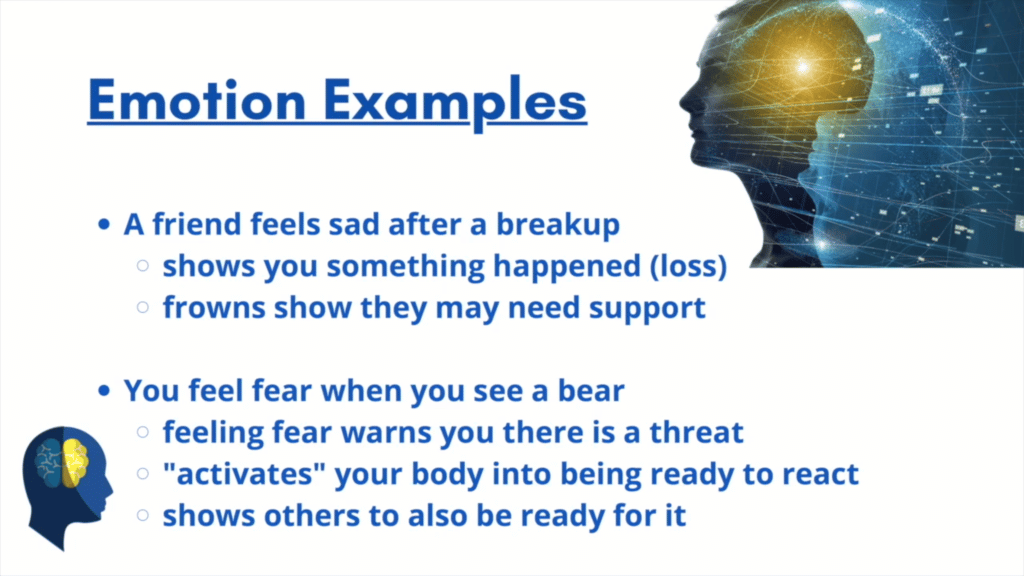Sometimes emotions can be difficult to deal with or cope with, but they actually help us humans be quite functional. Check it out!
if you’re interested in more about emotions, I also recommend a great book by pioneering researcher Paul Ekman on why we have these experiences.
Welcome back, I’m Dr. Matt B and these are your Emotional Minutes. Today we’re going to talk about emotions. People often wonder why we have emotions. They say things like emotions are a pain, difficult to deal with, and get in the way.
Reasons For Emotions
In terms of characteristics like increased heart rate, blood pressure, or other physiological reactions, emotional reactions make are helpful in a lot of ways. They signal that something is happening in our environment. These reactions mean you are tuning in to what’s going on around you. When these reactions occur, it alerts you to something you need to pay attention to or address.
Examples of How Emotions are Beneficial
If a friend feels sad after a breakup, their sadness shows you that something difficult has happened to them. In this case a loss. Their frown shows they may need support, whether they’re verbally telling you they’re sad or not.
When experiencing fear, especially something like seeing a bear in the woods, fear warns you and your body that there’s a threat. It activates your body and prepares you to react. The fear is telling you that you need to respond to that bear in some way to keep yourself safe. Your fear also tells people around you to be alert for danger.

Emotions alert you and those around you to changes in your environment, whether it’s a physical threat or difficult experience. We, as humans, are gifted with the ability to have these reactions. They help us recognize situations much more quickly and give us the opportunity to react to those situations.
Learning More and How to Cope
If you are interested in why we have emotions, there is a really good book by Paul Ekman on this topic and where these reactions come from.
Sometimes emotions can be hard to deal with, especially negative ones like anxiety, frustration, anger, and sadness. In later episodes we will cover ways to handle those feelings and deal with them in everyday life. Some examples of these strategies are cognitive self-talk, acceptance, behavioral activation, and social support.



